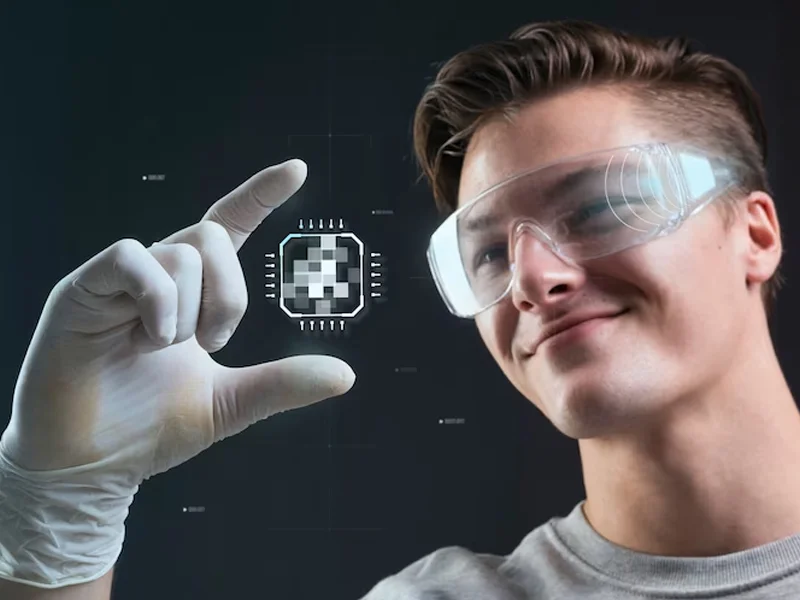The Future of Work and the Role of AI in Education: Preparing Students for the Jobs of Tomorrow
-

Artificial intelligence (AI) is fast modifying the nature of labor in numerous industries and is anticipated to do so soon. AI is changing how we operate and the abilities necessary to thrive in the workplace due to its potential to automate occupations and procedures.
The application of predictive analytics by AI is transforming the nature of labor.AI can analyze large amounts of data to identify trends and patterns that humans would require assistance to detect. As a result, businesses may be able to make better decisions and perform better as a whole.
How Artificial Intelligence is Changing the Workplace According to IBM, AI-enabled personalized learning can improve learning outcomes by up to 42% and indeed AI is changing the face of work in an array of ways. Here are a handful of instances:
Automation
Artificial intelligence is rapidly being utilized to automate routine and recurrent jobs. This indicates that robots now perform occupations formerly handled by people, such as data input or assembly line labor.Decision-making
AI is also utilized to help people make decisions in various occupations, from banking to healthcare. As a result, people may rely on AI to make smarter, data-driven judgments.Personalization
AI may be used to personalize products and services, improving customer experiences. E-commerce companies, for example, can utilize AI to propose goods based on an individual's previous purchases or browsing behavior.Preparing students for the job of tomorrow: Skills that will be needed
As artificial intelligence keeps changing the nature of work, students must acquire the abilities required for future vocations. Interaction, collaboration, and problem-solving abilities will be required in the future workplace. Human employees must be able to work successfully in teams, convey ideas clearly, and think creatively and critically as AI takes on increasingly regular duties.Some of the essential abilities that will soon be in demand are as follows:
Problem-Solving and Critical Thinking Although artificial intelligence (AI) can automate many routine tasks, it cannot replace the judgment of humans and decision-making. As a result, to flourish in the future job market, students must develop analytical and critical-thinking skills.Creativity & Innovation As artificial intelligence (AI) takes over regular activities, innovative human thinking and creativity will become increasingly crucial. Students must learn to think beyond the box to produce fresh ideas and build novel solutions.
Digital Literacy Skills Students must learn digital literacy skills, such as the ability to utilize digital tools and software, comprehend languages of programming, and analyze data, as AI becomes more commonplace.
Interpersonal abilities Despite the growing usage of AI, human contact will continue to be important in many areas. As a result, students must cultivate solid interpersonal skills such as communication, teamwork, and leadership.
How can education adapt to prepare students for the change that AI will bring?
As per a report shared by the National Science and Technology Council, AI has the potential to improve education by personalizing learning experiences, providing real-time feedback, and automating administrative tasks .The education system must adjust and educate pupils about the changes that AI will bring. Here are a few examples of how education may adopt:
Integrate AI into the Curriculum The educational curriculum might include AI courses or incorporate AI techniques and technology into other areas. Students should understand the impact of artificial intelligence (AI) technologies and tools on society and how to use them successfully.Enhance your problem-solving and critical-thinking abilities. Artificial intelligence will alter the nature of employment and generate new opportunities. As a result, learners must improve their analytical and problem-solving abilities.
These skills will enable pupils to adjust to a shifting labor market and provide novel opportunities.
Emphasise Creativity and Innovation While AI will replace certain occupations, it will additionally generate new ones. In this new work market, innovative thinking and creativity will be essential. As a result, schools should stimulate students' ingenuity and inventiveness.Teach Ethical Considerations Using artificial intelligence poses ethical issues that students ought to be aware of. Schools should educate pupils about the ethical implications of AI and the possible hazards connected with it.
Encourage Lifelong Learning As AI evolves, students must stay current on the newest discoveries. As a result, universities should encourage lifelong learning and provide opportunities for pupils to learn more about artificial intelligence and related technologies.
Conclusion Although the likely future of work is unknown, something is certain: AI is to have how jobs appear in the future. Overall, education must develop to better prepare kids for the modifications that AI will bring. At 1Journey, we prepare students for the future by introducing AI into the curriculum, fostering problem-solving and critical thinking abilities, emphasizing innovative thinking and creativity, teaching moral lessons, and encouraging lifelong learning.

